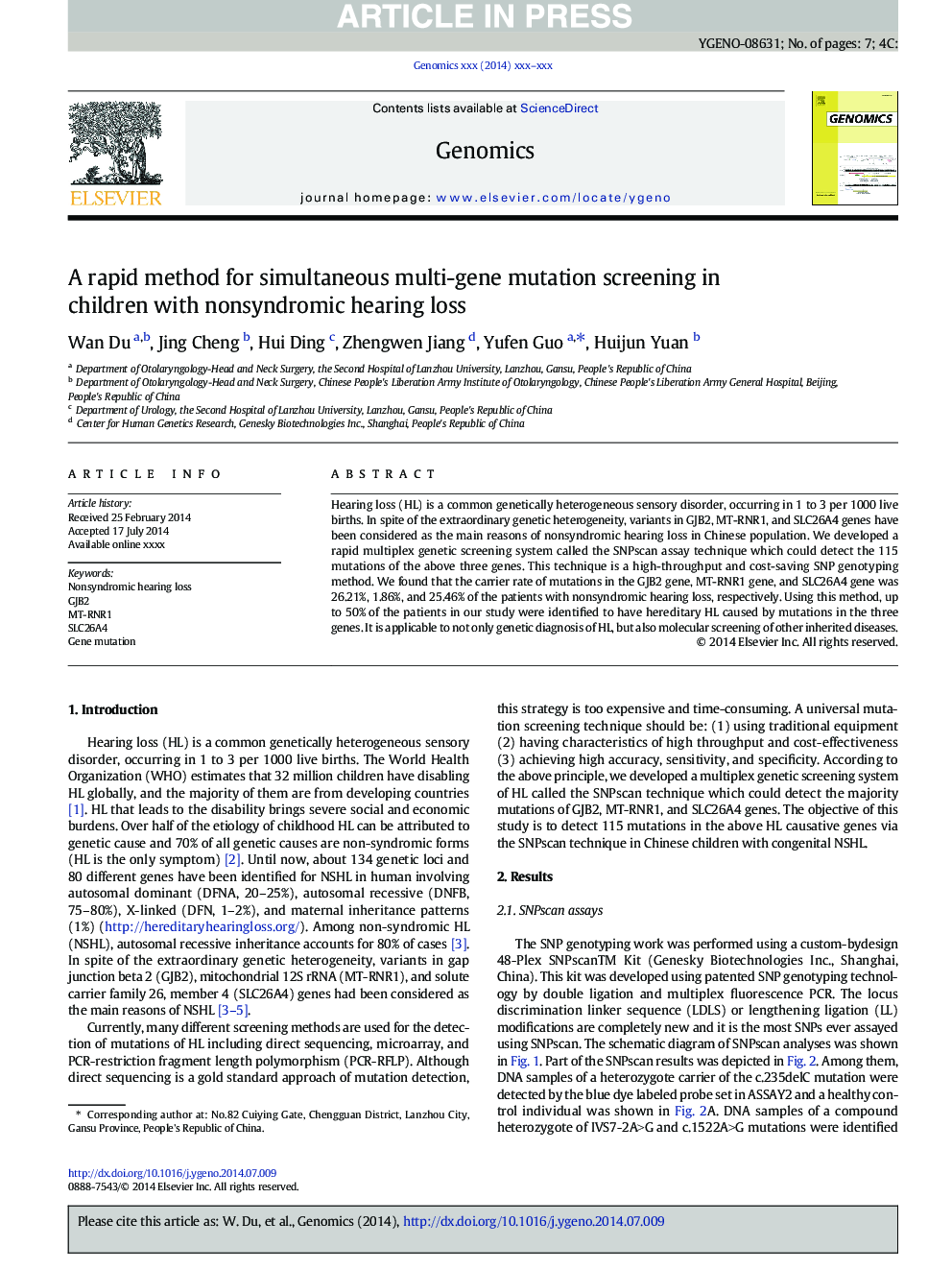| Article ID | Journal | Published Year | Pages | File Type |
|---|---|---|---|---|
| 5907754 | Genomics | 2014 | 7 Pages |
Abstract
Hearing loss (HL) is a common genetically heterogeneous sensory disorder, occurring in 1 to 3 per 1000 live births. In spite of the extraordinary genetic heterogeneity, variants in GJB2, MT-RNR1, and SLC26A4 genes have been considered as the main reasons of nonsyndromic hearing loss in Chinese population. We developed a rapid multiplex genetic screening system called the SNPscan assay technique which could detect the 115 mutations of the above three genes. This technique is a high-throughput and cost-saving SNP genotyping method. We found that the carrier rate of mutations in the GJB2 gene, MT-RNR1 gene, and SLC26A4 gene was 26.21%, 1.86%, and 25.46% of the patients with nonsyndromic hearing loss, respectively. Using this method, up to 50% of the patients in our study were identified to have hereditary HL caused by mutations in the three genes. It is applicable to not only genetic diagnosis of HL, but also molecular screening of other inherited diseases.
Related Topics
Life Sciences
Biochemistry, Genetics and Molecular Biology
Genetics
Authors
Wan Du, Jing Cheng, Hui Ding, Zhengwen Jiang, Yufen Guo, Huijun Yuan,
